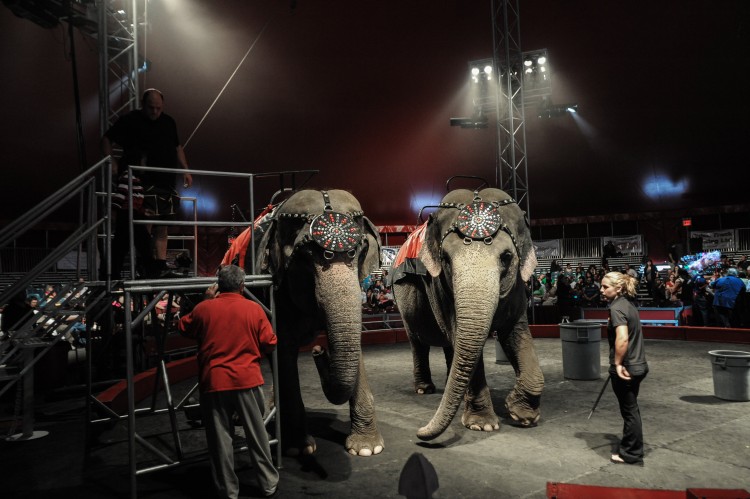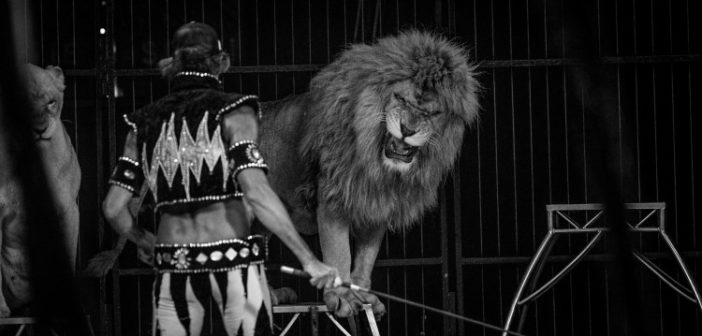As of January 20th, circuses performing in England will no longer be allowed to use wild animals as part of their act. The Wild Animals in Circuses Act 2019 expressly forbids circus operators from using wild animals in a travelling circus in England.
Similar bans in the UK and Ireland have already come into effect. The Republic of Ireland banned wild animal circuses last year, with Scotland too banning shortly after. Wales is also in the process of legislating, with a ban expected by the end of 2020.
There are two remaining circuses in the UK with wild animal licences: Circus Mondao and Peter Jolly’s Circus, who have a total of nineteen wild animals between them. The landmark legislation means that these six reindeer, four zebra, three camels, three raccoons, a fox, a macaw and a zebu will no longer be permitted to be used as part of these circuses’ shows. Just as importantly, however, is the fact that no future wild animal circuses will be allowed to start up.
Freedom for Animals’ Director, Sam Threadgill said: “This is a huge milestone towards a world where animals will be free to live their lives outside of captivity. Animal circuses are barbarous relics of a by-gone era and have no place in the 21st Century. Over decades, Freedom for Animals has tirelessly campaigned against the cruel animal circus industry and I am very pleased that this progressive legislation has finally come into effect. The dedication and hard work of many compassionate people has brought us to where we are today, and that is something also to be celebrated.”
He continued: “Whilst this is undoubtedly a very welcome step forward, we are concerned about the future for those wild animals who are held within Circus Mondao and Peter Jolly’s Circus, not to mention the domestic animals who are still forced to perform tricks as part of cruel circus acts.”
Irene Heaton founded Freedom for Animals (previously named the Captive Animals’ Protection Society) in 1957 during the perceived heyday of animal circuses in Britain. At the time, one circus alone (Billy Smart’s) toured with 200 animals including elephants, lions, horses, polar bears, camels, sea lions and chimpanzees.

In 1997, following a ten year long campaign by FFA, Blackpool Pleasure Beach finally announced that there would be no further animal circuses on its land. This followed a successful campaign by Freedom for Animals against the prestigious Blackpool Tower Circus, where animals including elephants and horses were confined to the tower’s cellars for six months of the year.
An undercover investigation by the charity in 2009 unveiled horrifying practices at the Great British Circus. Elephants were found to be chained for up to 11 hours a day and a spiked metal goad was used by a trainer on an elephant during the show. These are just a few examples of the suffering that wild animals confined in circuses have had to endure.
Marc Bekoff, PhD, Professor Emeritus of Ecology and Evolutionary Biology, University of Colorado, said, “This is very welcome news. There is no way that circuses can provide an adequate environment for wild animals. The long journey times to and from shows, the tiny enclosures provided, the lack of enrichment all lead to circus animals pacing, swaying and mouthing cage bars; clear signs of stress caused by captivity. This is not to mention the severe abuses involved in training elephants to perform handstands or tigers to jump through hoops, where fear and submission are needed to coerce these animals to display such unnatural behaviors. Put shortly, wild animals belong in the wild. “
Featured image: lions perform tricks for trainer at a circus in France. Image credit Jo-Anne McArthur / One Voice.





